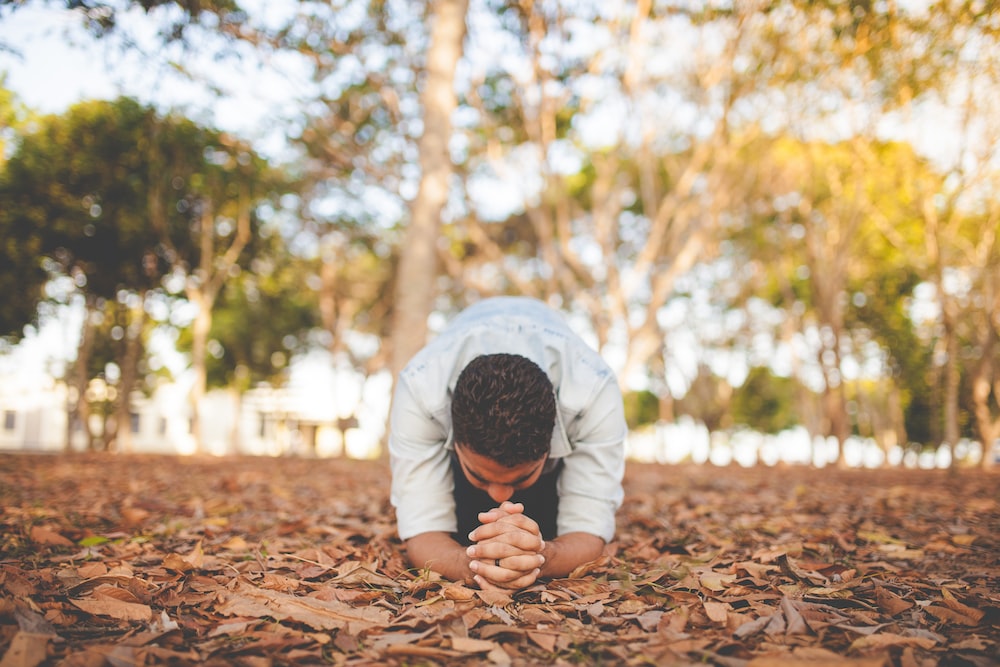Intermittent fasting is an effective way to lose weight and improve overall health, but when is the best time of day to intermittent fast? The best time of day to intermittent fast is in the morning, usually between 8-10am. Fasting in the morning helps to reduce cravings and jumpstart your metabolism. This type of fasting can help you lose weight, increase energy levels, and improve overall health.
To make the most out of intermittent fasting, drink plenty of water, eat healthy meals, and incorporate exercise into your daily routine. Taking these steps can help you achieve the desired results from fasting.

Make Every Day Intermittent Fasting Day – Intermittent fasting is a great way to stay healthy and fit. It involves fasting for a set number of hours each day and eating within a certain window. The benefits of intermittent fasting include improved metabolic health, better blood sugar control, weight loss, and more. It’s easy to incorporate into your routine, and you can customize it to fit your individual lifestyle. Try setting aside one day each week for intermittent fasting and make every day a fasting day!
Introduction

Intermittent fasting is an effective way to lose weight and improve overall health, but when is the best time of day to intermittent fast? The best time of day to intermittent fast is in the morning, usually between 8-10am. Fasting in the morning helps to reduce cravings and jumpstart your metabolism. This type of fasting can help you lose weight, increase energy levels, and improve overall health.
To make the most out of intermittent fasting, drink plenty of water, eat healthy meals, and incorporate exercise into your daily routine. Taking these steps can help you achieve the desired results from fasting.
Best Time of Day to Intermittent Fast: Morning
The best time of day to intermittent fast is in the morning. Fasting in the morning can help you reduce your calorie intake without feeling hungry. It can also reset your body’s natural circadian rhythms, helping you to stay alert and energized throughout the day. Intermittent fasting in the morning can also boost the metabolism and help you maintain a healthy weight.
So if you’re looking for a way to get the most out of your intermittent fasting routine, try starting your day with a morning fast. It could be just what you need for a healthier lifestyle.
Best Time of Day to Intermittent Fast: Afternoon

The best time of day to intermittent fast is in the afternoon. Intermittent fasting can offer a number of health benefits, such as weight loss and improved blood sugar regulation. Fasting in the afternoon can be especially beneficial because it allows your body more time to process food and utilize nutrients. Additionally, it can help you stay energized throughout the day since you’re not consuming high-calorie snacks. To get the most out of intermittent fasting, be sure to drink plenty of water and eat healthy, nutrient-dense meals when it’s time to break your fast.
Best Time of Day to Intermittent Fast: Evening
The best time of day to intermittent fast is in the evening. Intermittent fasting can help you lose weight, boost your metabolism and reduce inflammation. Fasting in the evening provides the body with a period of time when it can rest and repair itself, leading to improved overall health. Fasting in the evening also helps to improve the quality of your sleep and can make you feel more energized during the day.
Try to start your fast at least 3-4 hours before bedtime for best results.
Benefits of Intermittent Fasting During the Day

Intermittent fasting during the day has many benefits. It can help boost metabolism, increase energy levels, improve digestion, and reduce body fat. Also, it can help improve mental clarity and focus. By limiting your food intake to a certain number of hours each day, you can make sure that your body is getting the nutrients it needs while also giving your digestive system a rest. Day fasting can also help you maintain a healthy weight and reduce the risk of certain diseases.
Intermittent Fasting and Daytime Energy Levels
Intermittent fasting has become increasingly popular in recent years as a way to maintain a healthy lifestyle. Recent studies have shown that it can help improve daytime energy levels, allowing you to stay more alert and focused throughout the day. Intermittent fasting involves periods of eating and fasting, usually within a given window such as 16 hours of fasting and 8 hours of eating each day. During the fasting window, your body utilizes stored energy and helps to regulate your metabolism. This can lead to increased energy levels and improved focus during the day.
Daytime Intermittent Fasting Schedule

Daytime Intermittent Fasting Schedule is a popular way to stay healthy and manage weight. It involves eating during certain times of the day, while abstaining from food for the remainder of the day. This type of fasting provides many health benefits, such as improved digestion, better control of blood sugar, and increased energy levels. Additionally, studies have shown that intermittent fasting can help reduce body fat, improve overall health, and increase longevity.
To successfully follow a daytime intermittent fasting schedule, it’s important to plan ahead. Plan meals and snacks ahead of time and ensure that you have plenty of healthy food choices available throughout the day. It’s also important to limit processed foods and added sugars, and to drink plenty of water.
Following a daytime intermittent fasting schedule can lead to improved health and wellness, as well as successful weight management. With careful planning and dedication, anyone can reap the benefits of this popular style of fasting.
The Best Time of Day for Intermittent Fasting
Intermittent fasting has become increasingly popular in recent years, and one of the most common questions is what is the best time of day to do it. The answer may depend on your lifestyle and preferences, but generally speaking, the morning is the optimal time for intermittent fasting. Starting your fast in the morning helps to jumpstart your metabolism and kick-start your day with a feeling of energy and alertness. Moreover, ending your fast in the evening may help you to avoid over-eating late at night, when the body’s metabolism slows down. In conclusion, the best time of day for intermittent fasting is in the morning.
Risks of Intermittent Fasting During the Day

Intermittent fasting is an increasingly popular diet trend, but it can come with risks if done incorrectly. Fasting during the day can cause dehydration and electrolyte imbalances, as well as a decrease in energy levels. It is also important to remember that intermittent fasting is not suitable for everyone and should be discussed with a doctor first.
To make sure intermittent fasting is done safely, there are a few tips to follow. Drink plenty of fluids throughout the day, even when fasting. Make sure to eat a balanced meal once you finish your fast. Also, pay attention to signs like dizziness or feeling faint, as these may indicate that the fast has gone on too long.
Intermittent fasting can be a healthy way to manage your weight, but it is important to do it safely and responsibly. By following the tips mentioned above, you can reduce the risks associated with intermittent fasting and enjoy its potential benefits.
conclusion
Intermittent fasting can be a great way to reap the health benefits of this type of diet. When it comes to the best time of day to intermittent fast, research suggests that it is best to begin fasting in the early morning hours, such as before sunrise. This allows you to maximize the benefits of the fasting period and provides the most flexibility for when to break your fast. Day fasting is also an option, which allows for more structured eating and fasting periods. Whatever method you choose, make sure it fits into your lifestyle and provides the most health benefit.
Some questions with answers

Q1: What is the best time of day to start intermittent fasting?
It depends on the individual, but generally speaking, it’s best to start intermittent fasting in the morning when your body is naturally in a fasted state.
Q2: What are the benefits of intermittent fasting?
Intermittent fasting has many potential benefits, including improved metabolic health, weight loss, improved cognitive function, and reduced inflammation.
Q3: How long should I fast for during intermittent fasting?
It depends on the individual and their goals, but typically people fast for 16-24 hours.
Q4: When is the best time of day to break my fast?
The best time of day to break your fast is when you feel hungry and when it fits into your lifestyle. Generally, it’s best to break your fast at night or in the early evening.
Q5: Is it beneficial to intermittent fast every day?
Yes, it can be beneficial to intermittent fast every day, depending on your goals. However, it’s important to listen to your body and make sure that you’re not overdoing it.
Q6: Should I drink water while intermittent fasting?
Yes, it is recommended to drink plenty of water while intermittent fasting, as it can help to keep you hydrated and prevent dehydration.
Q7: Are there any foods I should avoid while intermittent fasting?
Yes, it’s best to avoid processed and sugary foods while intermittent fasting, as these can spike your blood sugar levels and disrupt your fast.
Q8: Can I exercise while intermittent fasting?
Yes, it is possible to exercise while intermittent fasting. However, it’s important to make sure that you are well-hydrated and have eaten enough prior to exercising.
Q9: Does intermittent fasting affect my sleep?
Intermittent fasting can affect your sleep if your fasting period is too long or if you don’t eat enough before bed. It’s important to make sure that you are eating enough and getting enough restful sleep.
Q10: Does intermittent fasting help with weight loss?
Yes, intermittent fasting can help with weight loss by reducing overall calorie intake and helping to regulate insulin levels. However, it’s important to make sure that you are still eating a balanced diet and getting enough nutrients.
